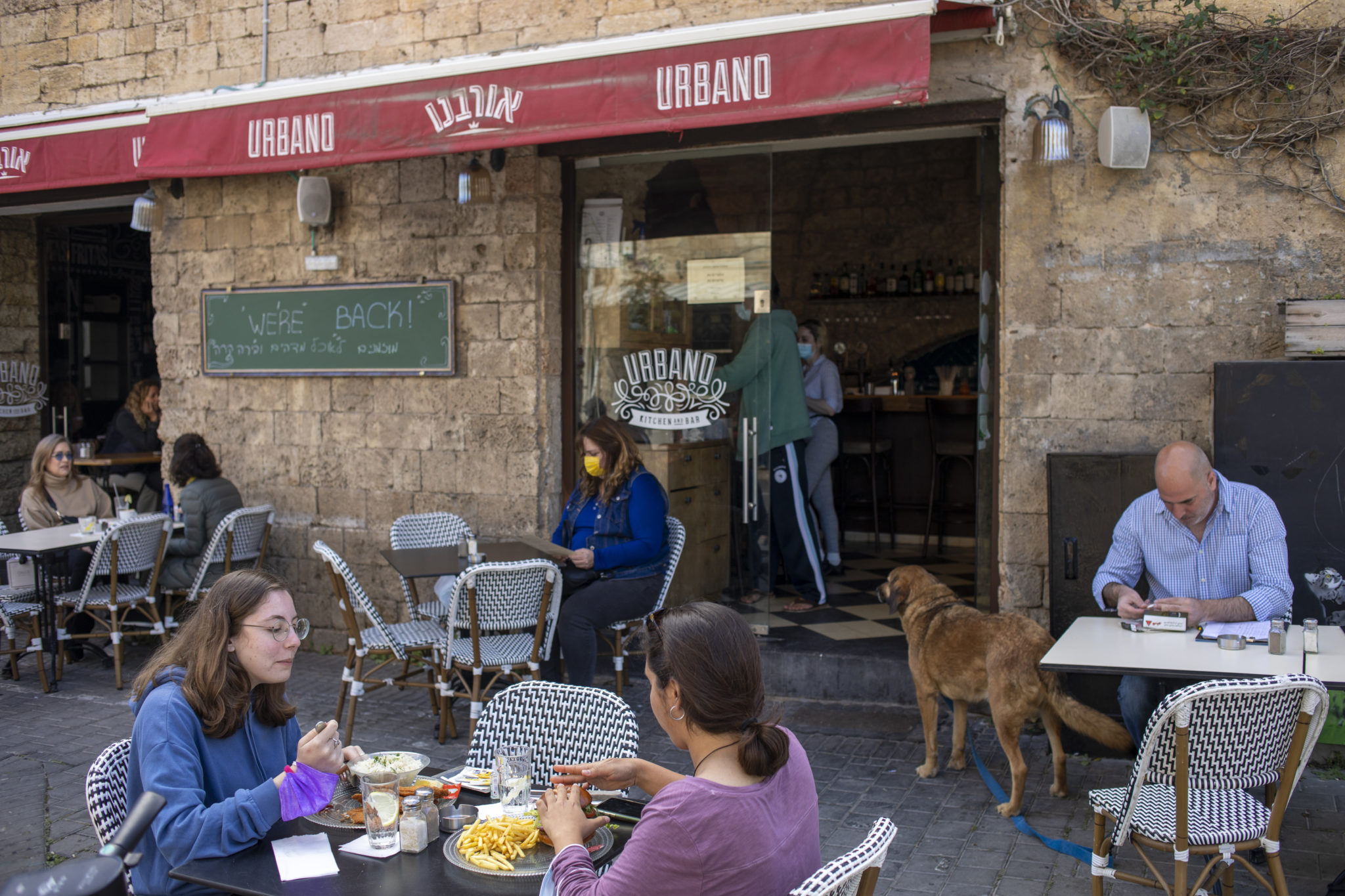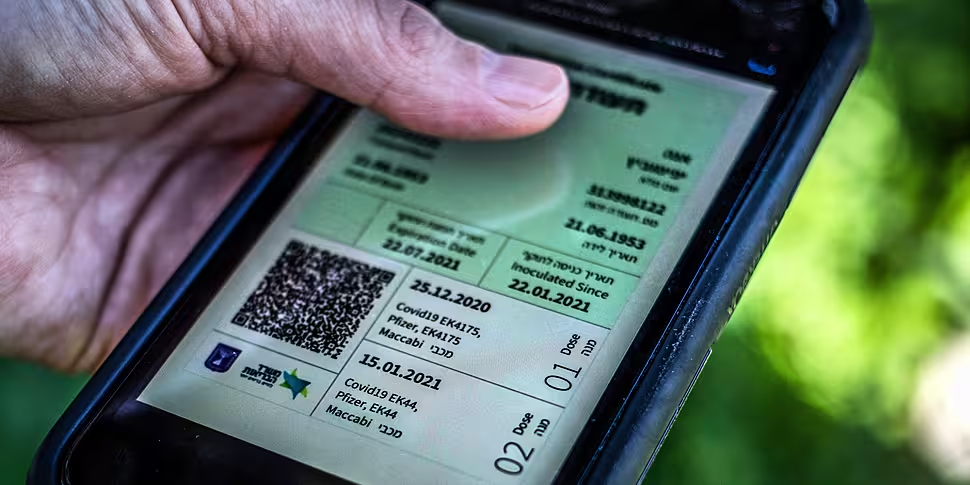As COVID-19 vaccination programmes ramp up across the world, attention is turning to how societies can reopen over the coming months.
Israel has achieved by far the highest rate of vaccination in the world, with over half of its adult population having received at least one vaccine dose.
With the likes of restaurants now reopening, applicable people can receive a 'green pass' - an official document confirming someone has either received a second vaccine dose or has recovered from coronavirus.
A pass is required to enter the likes of gyms, restaurants, cultural venues and stadiums.
However, the pass isn't required for the likes of outdoor dining.
Allison Kaplan Sommer, a journalist with Israeli newspaper Haaretz, told The Pat Kenny Show the pass is still in its very early days.
She said: "We have just rolled it out over the past few weeks, and it’s only been over the past few days that our restaurants have been open.
“Restaurant owners, people who are having concert or sporting events… are being counted on to check people’s QR-coded green passport, to make sure anyone going inside with large numbers of people have indeed been vaccinated.”
The QR code can be displayed on a smartphone, although it can also be printed off if needed.
The data does not include a photograph, but it does have a person’s national ID number on it - so they can produce a separate identity card to prove it matches with the vaccine pass.
Ms Sommer said the police didn’t want the responsibility of handling enforcement of the pass, so it’s falling on local authorities to enforce it if necessary.
However, she said the whole thing was announced so quickly that towns and cities didn’t have time to fully put in place an enforcement regime.
 People eat in a restaurant as restrictions are eased following months of government-imposed shutdowns, in Tel Aviv, Israel, Sunday, March 7, 2021. Israel reopened most of its economy Sunday as part of its final phase of lifting coronavirus lockdown restrictions, some of them in place since September. (AP Photo/Ariel Schalit)
People eat in a restaurant as restrictions are eased following months of government-imposed shutdowns, in Tel Aviv, Israel, Sunday, March 7, 2021. Israel reopened most of its economy Sunday as part of its final phase of lifting coronavirus lockdown restrictions, some of them in place since September. (AP Photo/Ariel Schalit)The pass rollout also comes ahead of yet another Israeli election - the fourth in just two years - and Prime Minister Benjamin Netanyahu is hoping the country’s rapid vaccine rollout and subsequent reopening will give him an electoral boost.
However, Ms Sommer said: “People are a little bit cynical about what’s happening - they’re joking as they go out to bars and restaurants that ‘we better enjoy this now, because we know after the election everything is going to get shut back down.
“For now, however, the numbers seem to bearing up… we have almost non-existent infection rates [among] people who have been vaccinated.
“As the country slowly opens up more, if the infection rates don’t shoot up then Netanyahu will get actual credit for it instead of people feeling like it’s a temporary electoral ploy.”
Vaccination programme
Despite the rapid pace of Israel's vaccination programme, the lack of vaccinations for Palestinians has criticised internationally.
Ms Sommer said 100,000 West Bank Palestinians who travel into Israel for work have started getting vaccinated this week.
However, she said it's still a controversial issue, as the Palestinian population amounts to millions of people, not just 100,000 workers.
Meanwhile, the 'green pass' is being seen as a way of trying to counter vaccine hesitancy in the wider Israeli community.
Ms Sommer explained: “It’s to give people incentive - a carrot, before putting a stick and punishing people who are refusing vaccines.
“There are definitely holdouts in the Arab communities inside Israel - there’s a lot of suspicion, because there’s a suspicion of the problem. There was a bigger problem in the ultra-Orthodoxy community… but there’s been some aggressive outreach in that population.”
However, some Israelis have faced consequences for refusing to get vaccines.
Ms Sommer pointed to one hospital in Jerusalem where some staff had refused vaccines - noting that those workers have now been temporarily suspended from their jobs.









